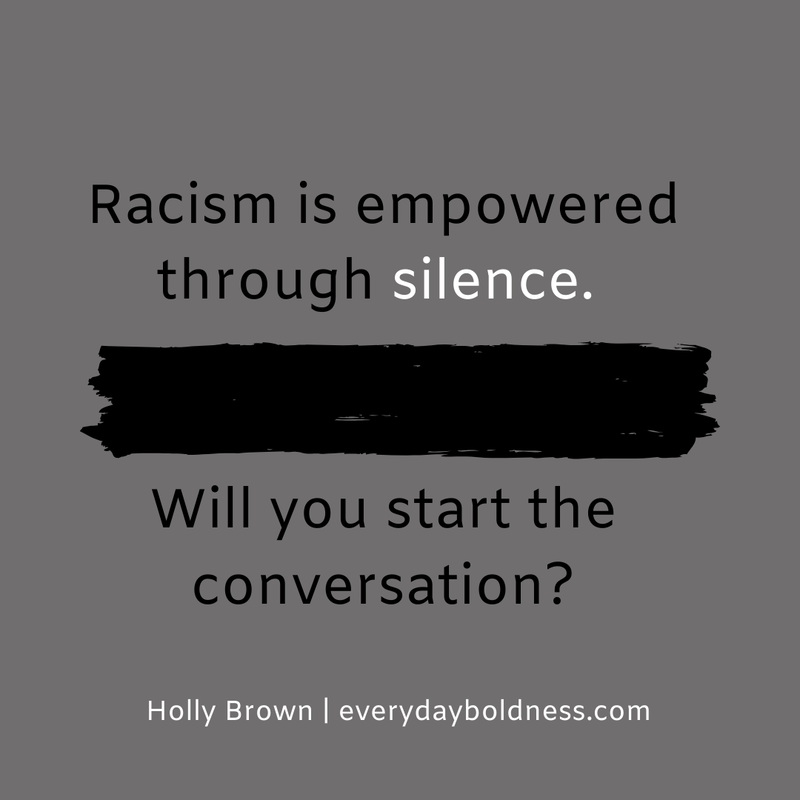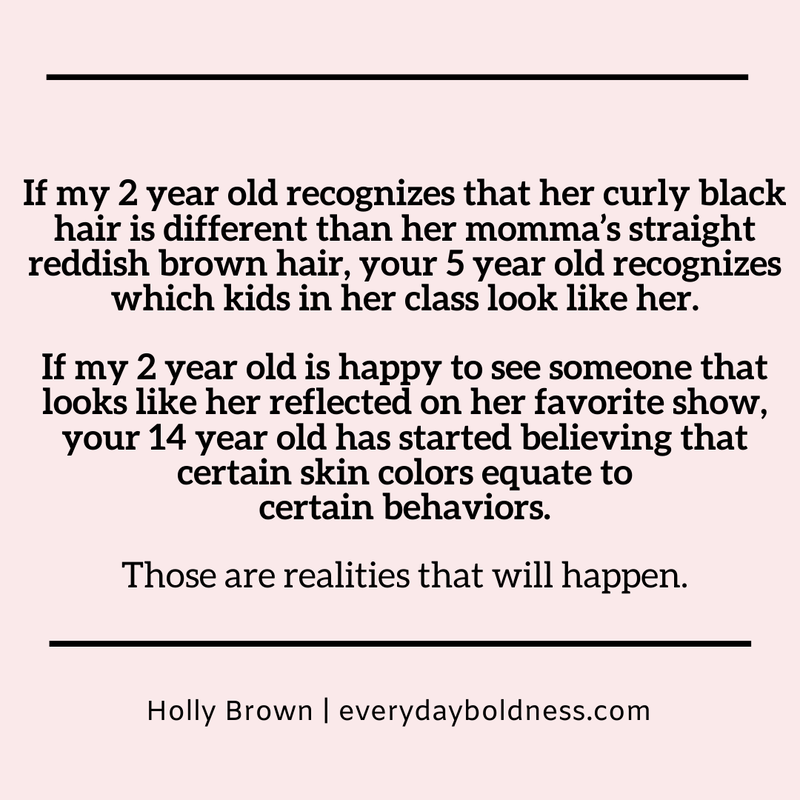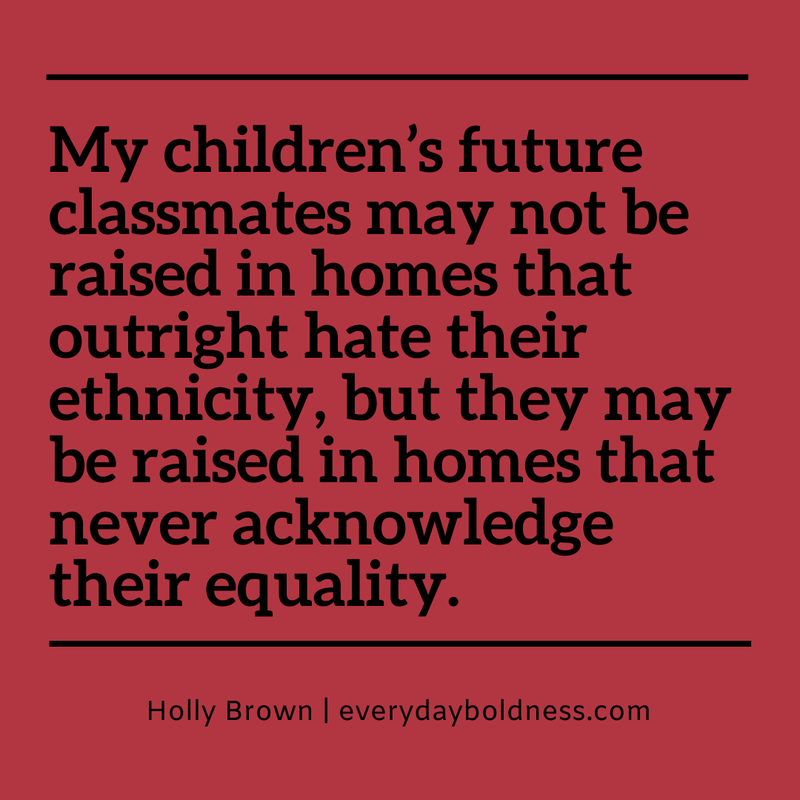|
These are resources that Aaron and I have listened to, watched, or read, or they are resources suggested by people we respect. Keep in mind, these will not all reflect the same sides of political beliefs, but they all hold truth and challenges that should be considered. By no means is this an exhaustive list.
Books/Articles Color of Compromise by Jemar Tisby Insider Outsider by Bryan Loritts White Awake by Daniel Hill The Warmth of Other Sons by Isabel Wilkerson I'm Still Here, Black Dignity in a World Made for Whiteness by Austin Channing Brown Just Mercy by Bryan Stevenson Stamped From the Beginning by Ibram X. Kendi Under Our Skin by Benjamin Watson Why are all the Black Kids Sitting Together in the Cafeteria? by Dr. Beverly Daniel Tatum Unpacking the Invisible Knapsack- Peggy McIntosh (you can google this) The New Jim Crow: Mass Incarceration in the Age of Colorblindness by Michelle Alexander Books For Children: When God Made You by Matthew Paul Turner When God Made the World by Matthew Paul Turner God's Very Good Idea by Trellia Newbell ColorFull: Celebrating the Colors God Gave Us by Dorena Williamson The Day You Begin by Jaqueline Woodson Little Leaders: Bold Women in Black History by Vashti Harrison Amazing Grace by Mary Hoffman All are Welcome by Alexandra Penfold Podcasts Seeing White Unity in Diversity That Sounds Fun Podcast with Mike Kelsey Happy Hour Podcast with Latasha Morrison Be the Bridge 1619 Videos/Shows I Can't Breathe- sermon by Charlie Dates When They See Us- Netflix 13th- Netflix Documentary Just Mercy 12 Years a Slave 4 Little Girls - Hulu How to Recognize your White Privilege- Peggy McIntosh Ted Talk Shows for Children: Doc McStuffins - Disney Motown Magic - Netflix Mira, Royal Detective - Disney Daniel Tiger - PBS and Prime People to follow on Social Media: Latasha Morrison, Founder and Author of Be the Bridge Mike Kelsey, pastor at McClean Bible Church Dr. Bryan Loritts, Pastor and Author Jackie Hill Perry, Author and Speaker Preston Perry, Apologist and Speaker Ben Watson, former NFL player Eugene Cho, president-elect Bread for the World Jemar Tisby, Author and Speaker Social Media: Be the Bridge Facebook Group Conscious Kid Instagram Account We Welcome Refugees Instagram Account Women of Welcome Instagram Account And Campaign - Instagram and Facebook Account
0 Comments
I once heard a white mom of biracial children and wife of a Black man say that it is as if she lives between two worlds. She no longer lives in the world she grew up in because she has started on the journey of learning about white privilege, racial injustice, and many of the issues being talked about so much in our nation today.
Yet, as a white mom, she will never live in the world that her Black husband and her biracial kids will. She will never fully understand what it means to be Black in this country. Her reality is between the two worlds of white privilege and Black pain. Her heartache could be felt in each syllable that she uttered. I clung on every word she spoke because for the first time I heard someone explain what I had been trying to articulate for myself. This was over three years and yet I find myself clinging to that truth each month. Sometimes each day. Sometimes each hour. These past weeks as I have held my son a few extra minutes each night, most of the minutes are spent begging the Lord for his safe-keeping until he is an old man. As I’ve scratched my daughter’s back when she lays her head on my lap, I plead that the Lord shows her from a young age that her beauty and worth are immeasurable knowing the world will try to force her to believe the opposite. Like so many white Christians, I’ve been wrestling with a lot of questions the past couple of weeks. Aaron and I have talked a lot about what is our next step as an interracial family. We like many of you, want to be able to tell our kids as they grow older the ways that we changed the world for the better. We’ve also been asked by numerous friends for suggestions on what white friends can do moving forward. I keep going back to the journey that has led me out of the predominantly white suburb that I grew up in, to the journey of learning that I’m now on. I’ve written out some actions that have been transformative in my own journey of learning to be an antiracist. I have not arrived, and I don’t think we should ever believe that we will. Until my dying day, I will want to be known as someone who is still trying to love others better than I did the day before. I hope these actions will be helpful for you on your journey as well. Although it seems to go without saying, I must mention that as a white person, I am unable to understand the stress and pain that Black individuals are experiencing- not just in this heightened season of awareness but every day of their lives. A few days ago, Ayana Lage on her Instagram feed said, “I saw a comment last night that made my heart sink- someone thanking a white influencer for sharing something not about racism. “It’s a breath of fresh air to see something lighthearted,” they said. I am profoundly jealous of you if you found out about systematic racism in the last two weeks. It’s a privilege to learn about it instead of living it, and it baffles me that some white people are already tired.” I’m honored that some of my lessons that I’ve learned might be helpful to you in your journey, but I also encourage and plead with you to seek out Black voices for your primary source of information, insight, and ways forward. Here are some questions that I ask myself on this journey regarding how I support Black friends and their families: 1. Do I recognize there are real and heartbreaking issues that Black people endure? How am I acknowledging those issues (and those biases) privately in my own life and publicly in my areas of influence? 2. Have I started my own education initiative that isn’t based solely on my friends of Color to teach me? Am I aware that it is not the responsibility of my Black neighbor to enlighten me on how I have missed systematic racism in our country? 3. Do I believe the stories of racism and prejudice that POC share? When they say someone responded to them with prejudice, do I try to think of reasons beyond prejudice that could explain that white person’s behavior? . Do I continually try to give the benefit of the doubt to the stranger in their stories? 4. Do I show support without expectations? When I text my Black friends support or encouragement, do I expect them to respond with thanks and praise? 5. Am I using my voice? Silence both privately and publicly from white friends is hurtful. When Aaron and I see friends who are recognizing the injustice and then calling it out by name- that has been like balm to a wound. To know that white friends and families care for the injustice that POC have been facing for years is a necessary part of deepening our friendship. We each have platforms and areas of influence that we can use individually to a) raise awareness b) share that platform with POC (those who would like to) so they can speak/share with a group they may not normally interact with. In the upcoming days and weeks, I’ll continue this blog series and share some practical action steps that Aaron and I have implemented in our home to increase diversity and knowledge in our everyday life. If you would like a list of resources to grow in this area, please click here. I’ll keep adding to the list but will repost the link when I’ve added additional materials. Come with me on this journey. I still have a long ways to go, but I know with every fiber of my being that I would rather be walking towards the People of Color in my life than standing still. As a child, I don’t remember there ever being a moment when I was looking at a book and had to search for a character who looked like me. I never had to. All the little girls in my books were white. I could see my reflection in all of them.
My daughter is two. She excitedly exclaims “Look momma! She looks like me!” when she sees a curly-haired brown skinned girl looking back at her. Even though we purposefully have books that represent a diverse group of children, she still notices that her reflection is not on every page. She still grows excited when she sees a face like hers looking back at her.
But my increasing fear is that their future classmates never discuss race with their own families. Their classmate who has never seen mom and dad have friends outside of their race is the one who becomes uncomfortable or fearful when my child sits nearby. Their classmate who has never had their parents take them to apark with a diverse group of kids playing is the one who doesn’t know you can (and should) find friend based on common interests rather than common features. Their classmate who has never heard their parents explain how to recognize and overcome personal prejudice against another group of people is the one who doesn’t know that prejudice is something to repent of rather than hide behind. Their classmates who have never heard their parents lament the loss of life due to injustice or racism is the one who doesn’t know that justice is a responsibility and a burden they too should bear. My children’s future classmates may not be raised in homes that outright hate their ethnicity, but they may be raised in homes that never acknowledge their equality. To my white brothers and sisters, I beg you, please start making race a regular conversation in your home. Please have the age appropriate heart-breaking conversations with your sons and daughters about Ahmaud Arbery. About Trayvon Martin. About Atatiana Jefferson. About Botham Jean… About the countless names that I have not listed. Racism is empowered through silence. Will you start the conversation? |
About Holly's BlogHolly loves to write, and you'll find her blog covers all different topics! Categories
All
Archives
July 2020
|




 RSS Feed
RSS Feed